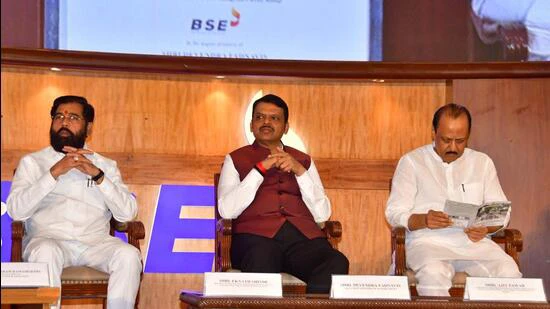MUMBAI: The special panel set up to deliberate on the controversial Maharashtra Special Public Security Bill, 2024, has decided to dilute some of the provisions – but is it enough?
The decision to amend the objective of the bill and a few of its provisions was taken by a joint select committee after more than 12,300 objections were raised by civil society groups and social organisations to the draft legislation, which aims at curbing “urban Naxal” activities.
Giving the state sweeping powers to clamp down on Naxal or leftist activities, the bill has been opposed by civil society as repressive and anti-people. Its opponents claim it could be misused by the state to silence dissent and target entities critical of the government – activities that fall outside the purview of Naxalism.
The 26-member committee, comprising legislators from across political parties, has amended the objective of the bill, to ensure that individuals cannot be prosecuted under the proposed act; only organisations can be booked under its provisions.
The second change in the objective is in the nature of the activity that can fall under the purview of the proposed legislation – the panel has amended its definition from “unlawful activities” to “unlawful leftist or hardline activities”.
Accordingly, the committee has amended the objective of the bill from “to provide for more effective prevention of certain unlawful activities of individuals and organizations” to “…unlawful activities of leftist and hardline organisations”.
“The earlier draft was perceived to have allowed for arbitrary action against any individual who took a stand against the government or constitutional entities. Changing how the objective of the bill is phrased gives a general sense that the legislation intends to act against organisations involved in unlawful activities linked to Naxalism,” an official said.
The panel has also clarified that retrospective action cannot be taken against any individual for any past association with an organisation banned under the new law, he added.
The joint select committee decided on the changes after their fourth meeting on Thursday. A revised draft is expected to be tabled during the monsoon session of the state legislature, beginning on June 30.
The committee has also made changes in the advisory board, which would approve the action and investigation against entities being prosecuted under the new law. While the original draft bill provided for a senior law officer to head the board, it is now made mandatory to have a retired high court judge heading the board.
The panel has also changed the rank of the officer who would investigate cases under the proposed law – from a police sub-inspector to a police officer of the rank of assistant superintendent of police.
Significantly, though, the committee has not withdrawn the word “urban Naxal” from the objectives of the bill.
State BJP chief and revenue minister Chandrashekhar Bawankule, who heads the committee, said, “Similar bills enacted by states such as Andhra Pradesh and Telangana have shown good results. It will be an effective deterrent to attracting youth to Naxalism by poisoning their minds.”
Nationalist Congress Party (SP) legislator and member of the joint select committee, Jitendra Awhad said, “Initially we had opposed the act as it appeared to be anti-people, but now it has been diluted. The new provisions are against actual Naxal and Maoist activities.”
Shashikant Shinde of the NCP-SP said, “A presentation was made by the JSC chairman to show why it was necessary to bring in an additional law. We were assured that the words “left wing extremist and hardliners” in the draft relates only to unlawful activities by organisations linked to Naxalism, and not individuals. We have also demanded that organisations who had submitted their objections be invited for a hearing. We have not yet given the go-ahead to the new draft.”
The bill, tabled in July last year after the Lok Sabha elections, was sent to the joint select committee in December. The revised draft is expected to be finalised at the committee’s final meeting on June 25.
Civil society organisations are not impressed with the changes. They say there is still a lot left to interpretation and the potential for misuse remains unchanged. Ulka Mahajan, state convenor of the Bharat Jodo Andolan, said they will continue to oppose the bill. “We suspect the bill intends to suppress the voice of the people opposing the government. If they say it will act against leftist and hardline organisations, it means it will be used against opposition parties. Who is to stop the government from linking the Bharat Jodo with frontal organisations of Naxals? And what about their own right-wing organisations? We will hold a protest on the first day of the monsoon session of the legislature.”
